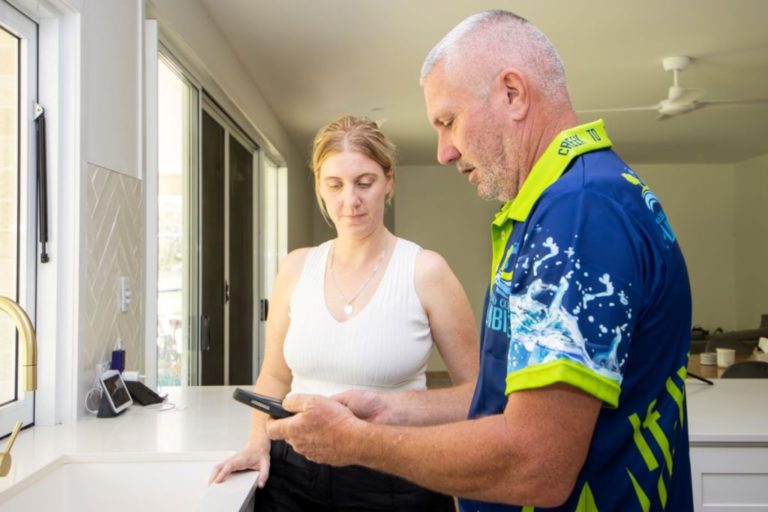When it comes to choosing the ideal hot water system for your household, it’s vital to assess various aspects that extend beyond basic functionality. The options available today highlight the importance of energy efficiency, significant long-term savings, and compatibility with innovative technologies such as solar power and smart home systems. For homeowners in Queensland, the selection process often centres on two particularly favoured alternatives: solar hot water systems and heat pumps. Gaining a comprehensive understanding of the advantages and characteristics of these systems can empower you to make an informed choice that best aligns with your household’s unique requirements.
Both of these options present energy-efficient solutions when contrasted with traditional electric storage or gas systems. However, they operate differently and cater to varying household needs, climate conditions, and budgetary constraints. Throughout this article, we will delve deeply into the distinctive attributes of each system, while also highlighting the rising trend of heat pump systems as the preferred choice for homeowners aiming for enhanced efficiency and cost-effectiveness.

Comprehensive Overview of Solar Hot Water and Heat Pump System Functionality
In-Depth Explanation of Solar Hot Water Systems
Solar hot water systems are ingeniously designed to utilise roof-mounted collectors that capture energy from the sun. This harvested solar energy is then employed to heat water that is stored in a specialised tank, delivering an environmentally friendly hot water solution for your home. Most systems come equipped with a backup heating mechanism, either electric or gas, ensuring a reliable supply of hot water during cloudy days or periods of high demand. This feature guarantees comfort and convenience for your household, even in less than optimal weather conditions.
Detailed Insight into Heat Pump Hot Water Systems
Unlike solar hot water systems, heat pumps function independently of sunlight. They extract heat from the surrounding air through a refrigeration cycle and transfer this heat to water within a storage tank. This operation is akin to how an air conditioning unit works, but in reverse. Heat pump systems do not require any components to be installed on the roof, making their installation more straightforward and accessible for a broader range of homes, thereby simplifying the process for homeowners.
In-Depth Analysis of Efficiency and Performance Metrics for Hot Water Systems
| Factor | Solar Hot Water | Heat Pump System |
|---|---|---|
| Requires direct sunlight | ✓ | ✗ |
| Operates effectively in shaded areas | ✗ | ✓ |
| Available for night-time use | ✗ | ✓ |
| Requires roof space for installation | ✓ | ✗ |
| Consistent performance in winter | ✗ | ✓ (in QLD climates) |
| Eligible for STCs/rebates | ✓ | ✓ |
| Compatible with solar PV systems | ✗ (standalone) | ✓ |
Note: In the warm climate of Queensland, heat pumps consistently maintain high efficiency levels throughout the year, making them a dependable and practical choice for homeowners.
Essential Installation and Maintenance Considerations for Hot Water Systems
Installing solar hot water systems necessitates the meticulous placement of collectors on your roof, a procedure that can complicate the installation, particularly in older homes or those with limited roof access. Factors such as shading, roof orientation, and pitch can profoundly affect performance, making careful planning paramount. Additionally, the arrangement of the tank and the plumbing system can restrict configuration options, leading to a more challenging installation process compared to other system types.
On the other hand, heat pumps are usually installed at ground level and are available in either integrated or split systems, requiring a footprint similar to that of a traditional electric tank. They do not demand any roof-mounted components, thus simplifying the installation and making it more manageable for homeowners. Furthermore, maintenance for heat pumps is typically less complicated, as they have fewer exposure points to UV rays and adverse weather conditions, which diminishes the frequency and costs associated with maintenance.
Optimising Your Savings with the Right Hot Water System Choice
Both solar hot water systems and heat pumps have the potential to significantly reduce energy bills. However, heat pumps frequently offer greater savings for households that:
- Experience limited sunlight throughout the day and require a dependable hot water source
- Use hot water during early morning or late evening hours when energy costs might be elevated
- Already have rooftop solar PV systems and wish to improve their energy self-consumption
- Avoid dependence on roof structures or prefer not to penetrate roof tiles
Since heat pumps operate using electricity, they can be programmed to operate during peak solar generation hours. This adaptability makes them an excellent complement to existing solar panel systems. Instead of sending surplus energy back to the grid at a lower feed-in tariff, homeowners can utilise their solar power directly to efficiently heat water, thereby maximising their cost-effectiveness and energy savings.
Navigating Upfront Costs and Available Rebates for Hot Water Systems
Both solar hot water systems and heat pumps qualify for Small-scale Technology Certificates (STCs), which can significantly reduce the purchase price, making these systems more affordable for homeowners. The number of STCs available is influenced by various factors, including geographical location, system size, and efficiency ratings. Additionally, heat pump systems may qualify for specific rebates in Queensland under the Energy Efficient Communities Program, which vary based on household characteristics and the nature of the installation.
To effectively navigate these rebate options, it is highly recommended to consult with a qualified installer like Creek to Coast Plumbing. They can provide expert guidance on eligible systems while managing the rebate application process, ensuring you take full advantage of all possible savings during the installation.
Choosing the Optimal Hot Water System for Queensland’s Unique Climate
In the coastal climates of Queensland, including regions like the Sunshine Coast and Moreton Bay, heat pumps often outperform solar hot water systems due to their consistent performance, ease of installation, and compatibility with solar energy technologies. They are particularly beneficial for homes that experience shading or have semi-sunny conditions, and are especially effective in residences equipped with battery storage or smart controllers that optimise energy usage.

Evaluating Ideal Options for Your Hot Water System Needs
While solar hot water systems continue to hold significance, particularly in homes with unshaded, north-facing roofs that demand high daily hot water usage, heat pump systems provide a more adaptable and comprehensive solution for many homeowners across Queensland. They offer reliable performance, straightforward installation processes, and seamless integration with existing solar PV systems, making them a sound investment for energy-conscious homeowners.
If you are considering an upgrade, we encourage you to visit our Heat Pump Hot Water Systems Installation Page for more detailed information or to request a personalised quote tailored to your specific requirements.
The Article: Heat Pumps vs Solar Hot Water: Which is Superior? first appeared on https://writebuff.com
The Article Heat Pumps vs. Solar Hot Water: A Comparison of Efficiency Was Found On https://limitsofstrategy.com






